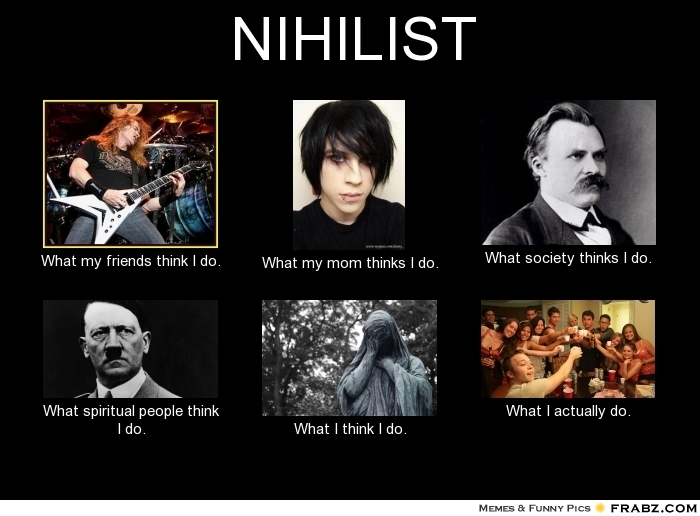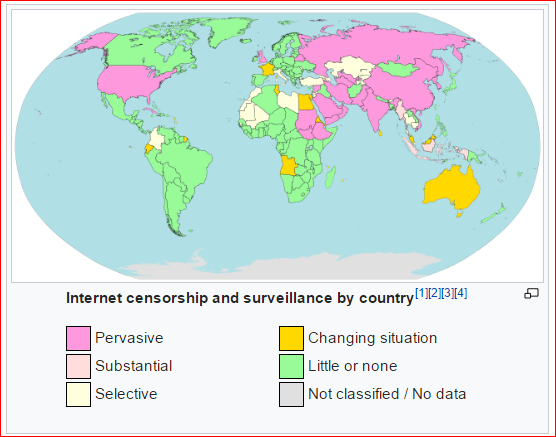Data Collection & Ethics
Note: This article might seem odd, it was an assignment for a class that I thought was well written enough to post here. It’s a long form ethical post. Enjoy
Data collection is an important and highly relevant topic in the modern age. People have wrestled with the degree to which companies control user data for decades, and the world is final starting to see 3 major breaks in ideology. The first major ideology is the liberal, public focused ideal that gives people the power to control their own data. This ideology is primarily pursued in Europe, wherein 2014 a high European court mandated that people be able to delete information and links about them from Google’s search engine[1].This ‘Right to be Forgotten’ has existed in some form or another since 2006 in Europe. Europe as a whole is one of the most liberal regions on Earth, which manifests itself in several ways one of which includes the Right to be Forgotten.
The second major ideology is that of the opposite spectrum, being the extremely conservative version of control. People don’t own their data, corporations and the government does, and they use it how they want. People might produce said data, but have no influence over it except in where or if they reveal initially. Once known, they lose control to that data. This interpretation is normally seen in authoritarian regimes and communist states, such as Turkey and China [2][3]. The governments and companies in these regimes will not always make their surveillance and data collection apparent until they take action based on it, which has led most citizens in these countries to assume they are being watched at all times.
The final ideology related to data collection and people’s rights over it is somewhere in the middle, and is what this article will focus on. A mix of capitalism and a mixed market economy such as the United States and Canada, where the companies have some control, but the public and individuals have control as well. The exact control of data is in a constant struggle as companies pull for more data control while the public often fights to keep data rights in the hands of citizens. Also, since NSA mass surveillance revealed by Snowden in 2013 is largely viewed as unethical [4] this article will ignore it as the debate regarding mass surveillance regards it as a necessary evil in order to ensure security, which is also not the focus of this article.In this article, the focus is on how ethical it is for companies to collect data on their users and customers, and who owns the information they collect,as well as to what extent they should collect data.
To focus on data collection, we’ll take a hypothetical situation of a company and look at the ethical dilemmas presented, the options available to the company, where those options would lead and what president they would set, and lastly decide what the ethical decision would be. The hypothetical situation follows:
There are many big data analytics companies which use various methods to collect data about individuals. One company in particular,Company ABC, uses online personality tests to gather data. Company ABC advertises free questionnaires that promise to tell you about different aspects of your personality and provide tips about harnessing these aspects to be amore successful and fulfilled individual. Once you click on the ad, you go to a website where you are asked to complete a variety of questionnaires. You are also asked to enter some basic personal data (name, age, address, income level)to help tailor the results more specifically. You are then provided with the results of the personality tests. What most users do not realize is that Company ABC then takes the responses provided by participants, bundles it with other publicly available data and data purchased from first and second party data holders and uses these data to categorize individuals based on demographics, personality, and other issues. Company ABC also develops profiles based on the personality data they collect and extrapolates personality details for people who haven’t taken the tests based on other public or purchased data points. Company ABC then sells this data, including the personality profiles,to political campaigns and advertisers to help them tailor their ads or campaign messages directly to individuals. Buried in the personality profile website’s 10,000-word use policy is a single line that says data collected on the site may be used for other purposes.
The question of is the company acting ethically isn’t as straight forward as it might seem. It’s certainly acting legally, as it includes a disclaimer that they can use the data however they want. This naturally leads to the question:are laws the standard of ethics? A very easy argument to make focuses on laws in clearly unethical countries, such as Nazi Germany or the Soviet Union, where it was law to turn in people based on racial, religious, and political grounds,after which they would be tortured or killed. In this simple argument, the following question is more difficult to answer: what defines ethics? To answer this question one has to look at the standard philosophies that have come about to solve the moral issue of what is moral and what is not. These include utilitarianism,deontology, the categorical imperative, nihilism, and others which I won’t address, as anything more than a brief description of the philosophies already listed would span out of scope for this article. And I know what you’re saying,nihilism isn’t a moral philosophy; it doesn’t say how one should live. I’ve included it since you can apply it to the situation and see its implications,it just won’t say if the company is ethical or not.
In reference to the hypothetical, utilitarianism would state that the best action is one that maximizes utility. Utility is defined loosely, but for the sake of brevity we’ll assume it means the sum of all pleasure derived from an action less the suffering derived from some action. The end result of this equation could be called the sum result of the consequences of the action. In focusing on the consequences of collecting the data of their customers, company ABC would benefit, which would be a plus, and the customers would either benefit or suffer, based on their world view. If they didn’t know and would not have wanted to be tracked and now they are, the action hurt them. If they know and are fine with it or wouldn’t care if they were tracked or not, you could say it was a benefit as the ads and personalized content they see is more relevant. If you assume the rate of tracking approval follows the results found from Pew Research Center [5], about 90% of the US general public would disagree with the privacy controls of the company, and therefore their actions would cause them to suffer rather than benefit. Assuming the company has less employees and the money generated from tracking is less helpful to other companies and people down the money supply line than the companies customers, it would be net loss and therefore not ethical to track the customers in utilitarian ethics.
In the view of deontology, which is an obligation based philosophy, Company ABC tracking and selling their customer information might seem completely fine.Since they are operating within the law, the deontology might say that their only duty is to follow the law and generate profit in a capitalistic mixed economy. An argument could also be made, however, that a company as a duty to its customers and community that it operates in as well as the law. This idea has been debated for some time, initially sparked in 1946 when Congress allowed companies to write off 5% of their federal taxes to charitable donations [6].The debate is still ongoing in the US about what responsibility companies have outside of the law, and whether that responsibility should be implicit or explicit.As it isn’t decided in the US and by definition companies exist to make a profit, this article will assume that a company only has a responsibility to its shareholders, and any goodwill to society is merely a gesture of goodwill in which a company is hurting itself for the public good, which is not addressed in deontology. Therefore, in deontology it would be ethical for the company to track its customers as long as the company followed the law.
Next is the categorical imperative, the philosophy of Immanuel Kant. This one deserves an explanation unlike the others, which can be easily grasped reading the summary on a Wikipedia page. The categorical imperative is based out of deontology, where one should only act as if any action they partake in should become a universal action or law. This was made specifically to address utilitarianism, which is often highly subjective and judgements can’t easily be made from since only complete knowledge of the consequences of any certain action would have to be known in order to classify any action as moral or not. The categorical imperative was created in order to make ethical decisions, not to decide if a past action was ethical or not. This major difference changes the perspective of our hypothetical slightly. When applied to Company ABC, the company doesn’t know the outcome of its action. All it knows is customers give them information, of which most customers don’t know they are giving, and the companies sells this information for a profit. In the categorical imperative perspective, the company might need to be treated as a collection of individuals, since tracking and data collection doesn’t apply to a company a sit would individuals. In the modern world, people value privacy. Referencing the Pew study once again, 92% of people strongly value privacy. This means that it would be highly likely the employees at Company ABC would not want to be tracked and their information sold as much as their customers. Due to the public’s strong opinion about privacy, in the categorical imperative it would be very unethical for the company to track and sell their user’s data.
I’ve included nihilism because I think the ethical dilemma could be better addressed taking it into account. Being an existential nihilist, in thinking about humanity and any single human being insignificant helps in seeing the big picture of the hypothetical. If nothing matters, and morals are an arbitrary and artificial framework people made to survive, what the company does with its customers data doesn’t matter. In this sense, it would make the most logical sense for it to do, as it increases profits, which is why companies exist. As existential nihilism is about the insignificance of everything, it stands to reason that the only moral framework is one which is helpful to oneself. This could be considered the philosophy of Viktor Frankl in a way. In his book Man’s Search for Meaning, he continually pointed out that meaning in life is what one makes of it. In Frankl’s own words, “Ultimately, man should not ask what the meaning of his life is, but rather must recognize that it is he who is asked. In a word, each man is questioned by life; and he can only answer to life by answering for his own life; to life he can only respond by being responsible.”[7] In this respect, if the meaning of the company is to generate profit, the logical conclusion of that aim is to sell customer information, while being within the legal bounds as to minimize monetary risk to the company.
Ultimately, in the existential nihilistic view I would say that the Company ABC shouldn’t collect customer information if I were a customer, because I value privacy, and as such the company would be breaking my value. This is where existential nihilism varies, in that people can still value things they decide to value, while recognizing that whether they value something or not doesn’t matter. On the other hand, if I was an employee of said company, it would make sense that the company maximize profits and therefore my own well-being. This answer might not be satisfying to most because there is no absolute right or wrong, and in fact there is no right or wrong at all. If everything is subjective, the idea that something is right or wrong is arbitrary. For many this might seem unsettling in that nothing is objectively right or wrong, and someone who believes that might seem to change their morals based on the situation. Whether unsettling or not, I take this viewpoint because I believe it’s the way things are. The world isn’t inclined to be fair, nice, or cadre to the sensibilities of man. In this sense it’s more productive to understand how the world is, not how it should be, which what nihilism is: the realistic view. It might make you sad that nothing is objectively moral, but if you think about it, things have always been this way, you just never noticed. An example could include anything generally considered ‘bad’, from lying to murder. Sometimes people lie to protect others, and sometimes lies are needed. Sometimes lies are used to further one’s self. Sometimes people kill out of spite. Sometimes they kill in self-defense, or as their job. To understand the world as arbitrary and ultimately pointless should lead people to have a greater appreciation for what’s around them. When things are arbitrary and you see that all life is self-interested, meaning people in general act of what is best for them, it makes actions that might seem puzzling to be more clear and understandable.This could be called an active existential nihilism, since you still act asthings have meaning and still pursue your own goals, despite the fact you know everything is arbitrary and nothing has inherent meaning.

As I’ve said, this will sadden some people. When I first came to realize this, it was hard. How do you continue knowing that it doesn’t matter if you get out of bed or not? In this sense you see religion, traditions, and cultural constructions for what they are; a blanket of calm in the face of meaninglessness. A passive nihilist would be resigned to this fact, and not pursue anything, instead focusing solely on the nothingness of the universe. Passive nihilism might be the first inclination of someone discovering nihilism, but active nihilism would be a more profitable, albeit harder, way to pursue the ideology. Active nihilism allows people to fully control their own fate. There is no god, tradition, or social construction holding back an active nihilist. In active nihilism, you use your passion, ability, and intelligence to craft your own self and the world you want to live in, because you understand the world is arbitrary. This means you have as much power to change it as anyone else, the hard part is figuring out how and putting in the time and effort, but it isn’t impossible. This is where I believe the ultimate active nihilist arrives at. Technology and science help us shape and understand the world around us, which is the best humanity can do. There might be no purpose, but understanding the world around us more completely is a goal I’m willing to pursue, and I hope in understanding these different philosophies you might also find a goal worthy of pursuing.

As always,
Thanks for reading
References
[3] http://march12.rsf.org/i/Report_EnemiesoftheInternet_2012.pdf
[5] http://www.pewinternet.org/2015/05/20/americans-attitudes-about-privacy-security-and-surveillance/
[6] http://acton.org/pub/commentary/2013/09/18/social-responsibility-business
[7] Viktor Frankl, Man’sSearch for Meaning, p. 131
